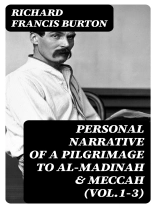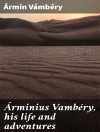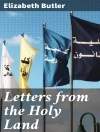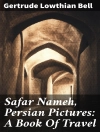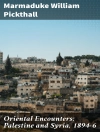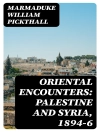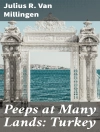In ‘Personal Narrative of a Pilgrimage to Al-Madinah & Meccah, ‘ Richard Francis Burton offers an evocative and richly detailed account of his journey to the heart of Islamic devotion. Written in an engagingly vivid literary style, Burton’s work transcends mere travelogue, as he delves into the cultural and spiritual dimensions of the pilgrimage, intertwining his personal reflections with extensive ethnographic observations. The volumes, steeped in the 19th-century imperial context, capture the intricacies of the Islamic pilgrimage while simultaneously critiquing Western perceptions of the East. Burton, a polymath and a renowned explorer, was fascinated by the cultures and languages of the regions he traversed. His extensive background in linguistics and Islam shaped his profound insights into the cultural norms and religious fervor surrounding the pilgrimage. His adventurous spirit and experiences as a British consul in various parts of the Muslim world allowed him to approach the subject matter with a unique blend of respect and curiosity, making his insights both authentic and provocative. This compelling narrative is highly recommended for readers interested in religious studies, travel literature, and intercultural dialogue. Burton’s work not only serves as a historical document but also invites contemplation of faith and identity, making it a significant and enriching read for scholars and casual readers alike.
Tentang Penulis
Sir Richard Francis Burton (1821–1890) was a British explorer, geographer, translator, writer, soldier, orientalist, cartographer, ethnologist, spy, linguist, poet, fencer, and diplomat, renowned for his travels and explorations within Asia, Africa, and the Americas, as well as his extraordinary knowledge of languages and cultures. Burton’s best-known exploration is perhaps his pilgrimage in disguise to the Islamic holy cities of Mecca and Medina. He was one of the first non-Muslims to do so and lived to tell the tale in his monumental work ‘Personal Narrative of a Pilgrimage to Al-Madinah & Meccah’ (1855-1856), which offers rich insights into the geography and ethnography of the region. His intricate and detailed account held much anthropological importance during a time when such areas had rarely been described by Western writers. A remarkable linguist, Burton was proficient in more than 40 languages and dialects. His scholarly approach to the study of Eastern cultures and his approach to immersive anthropology significantly influenced Victorian and contemporary scholars’ understanding of non-Western cultures. Burton’s travel writings were given a depth furthered by his linguistic skill and passionate interest in local customs and beliefs. His unorthodox views and his colorful life —often surrounded by controversy— have made him one of the more fascinating and enigmatic figures of the Victorian era.
